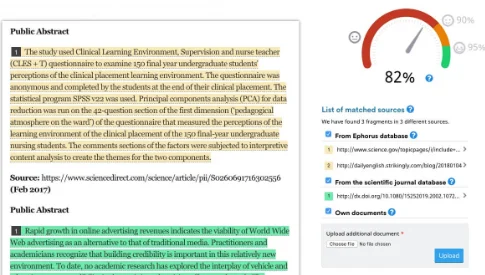If you’ve been caught using Chegg, it’s important to accept responsibility for your actions right away.
With your professor or institution in place, be prepared to discuss the breach of academic integrity honestly while expressing regret and a commitment to learn from the experience.
You will find advice in this post on handling the shock of being discovered using Chegg. Read on.
I got caught using Chegg. What to do?

First, pause to consider your actions and admit that you violated academic integrity. Next, contact your lecturer or institution and apologize for your error.
Communicate openly and truthfully, showing regret and a sincere desire to grow from the experience.
Notably, recognize that there can be repercussions, such as a poor grade or disciplinary actions, and politely accept them. Make the most of this experience to improve yourself and your understanding of moral behavior in the classroom.
As you go on, commit to upholding academic integrity and getting the right kinds of assistance, including from professors or tutors, to help you better understand the material. Remember that mistakes will be made, but what matters most is how you respond to them.
How to Explain Yourself When Caught
When defending yourself after being caught, being truthful and responsible for your conduct is critical. Start by owning up to your error and accepting responsibility without providing any justifications.
Describe the circumstances that led to your choice, whether it resulted from poor judgment, a lack of knowledge, or a lack of time. Express sincere regret and stress your dedication to using this experience to improve.
Demonstrate your understanding of the seriousness of the offense and how it affects academic integrity. Additionally, reassure the parties involved that you will take the necessary actions to stop similar occurrences from occurring in the future, such as looking for the right support and resources.
Your ultimate objective should be to show development, honesty, and a sincere desire to make things right.
Excuses to Give for Cheating Using Chegg
Time Constraints
Students may claim they were overwhelmed with assignments, exams, or other responsibilities, leaving them with insufficient time to complete the work honestly. They might argue that Chegg offered a quick solution to meet the deadline.
Lack of Understanding
Some students might argue that they needed help comprehending the material and turned to Chegg for clarity. They may claim that using Chegg was the only way they could understand and complete the task.
Fear of Failure
Students might express anxiety or fear about failing a course or assignment. They may argue that they resorted to Chegg desperately to secure a passing grade or maintain a certain GPA.
Peer Pressure
Students might mention that their peers were also using Chegg, creating an environment where academic dishonesty appeared more acceptable. Also, they may argue that they succumbed to the pressure to keep up with their classmates.
How Teachers Catch Students Using Chegg Answers
1. Plagiarism scan

To find any plagiarism, the plagiarism-scanning program compares the students’ submitted work to a vast database of online sources, including Chegg answers.
The plagiarism checker may raise a red flag if a student uses Chegg content without proper citation or copies answers directly from
2. Chegg
Additionally, if a student used Chegg extensively for answers, teachers could notice inconsistencies in their understanding during class discussions or exams.
Additionally, teachers may also become suspicious if the student’s writing style or language differs from their past work.
Also, tutors have a better chance of identifying students who have utilized Chegg or other online sources improperly by deploying plagiarism scanning technologies and carefully monitoring students’ academic progress.
3. Comparing Answers
Teachers can identify many students who have identical or almost identical answers that match those discovered on Chegg when grading assignments or examinations. This may spark suspicion and lead to more research.
Additionally, when Chegg answers are used, teachers can notice a notable discrepancy between a student’s current performance and the caliber or correctness of their work. Teachers can spot cheating by carefully reviewing student replies and cross-referencing them with Chegg or other sources.
Teachers may also ask follow-up questions or engage them in discussions about their work to assess students’ comprehension and determine if they understood or copied the concepts from Chegg. Using comparative analysis, teachers can identify students who have improperly used Chegg answers for academic work.
4. Similar wrong answers
If many students make the same error or exhibit similar assumptions, it is clear that they have copied the wrong answers from Chegg.
Again, teachers frequently have a strong grasp on the typical mistakes that pupils make, so when they spot a pattern of the same or nearly identical erroneous answers, it raises questions about cheating.
They can find patterns in the incorrect student responses that show Chegg or other outside sources were used by comparing the incorrect student responses.
A responsible tutor can identify academic dishonesty and take the necessary action to resolve the situation by keeping track of regularly incorrect but similar responses.
5. Monitoring online activity
Teachers may use monitoring software or watch students’ screens during tests or tasks to ensure they aren’t using Chegg or other forbidden resources.
They can discourage students from seeking outside help during tests and preserve the integrity of the evaluation process by regularly monitoring online activities.
More importantly, this strategy aids in establishing a fair environment where students are motivated to rely on their knowledge and comprehension rather than seeking assistance from unapproved sources.
Why Students Copy Chegg Answers
Lack of preparation

Students who replicate Chegg’s answers frequently need more preparation, which contributes greatly.
Students may feel pressured to take shortcuts when they don’t fully prepare for an assignment or exam because of procrastination, poor time management, or lack of effort.
Submitting something by copying Chegg’s answers without spending time and effort comprehending the subject becomes simple.
However, students must understand the value of preparation and the drawbacks of relying on outside resources rather than real learning and participation.
Peer influence
Students that copy Chegg’s answers often do it under the influence of their peers. Students who see their peers using cheating techniques or outside sources like Chegg may feel pressured to do the same to fit in or obtain an unfair edge.
They may give in to peer pressure out of a desire to keep up with their peers or fear of falling behind academically.
However, it is vital that students put their academic integrity first and make moral decisions, realizing that success comes from intense study and personal development.
Desire good grades
When students prioritize the outcome of high grades over the learning process, they may be tempted to take shortcuts to achieve immediate success.
The pressure to excel academically and the belief that good grades define their worth or future opportunities can drive students to rely on Chegg for quick answers.
However, students must understand that academic success lies in genuine understanding, knowledge application, and personal growth rather than simply chasing grades.
Accessibility of online resources
Students have quick and easy access to a wide range of information, solutions, and answers. The convenience of accessing pre-made solutions on websites like Chegg may attract students to use these tools rather than trying to think critically and develop solutions independently.
However, students must understand that relying entirely on online resources impedes their learning and denies them the chance to acquire critical abilities and information through sincere interaction with the subject matter.
